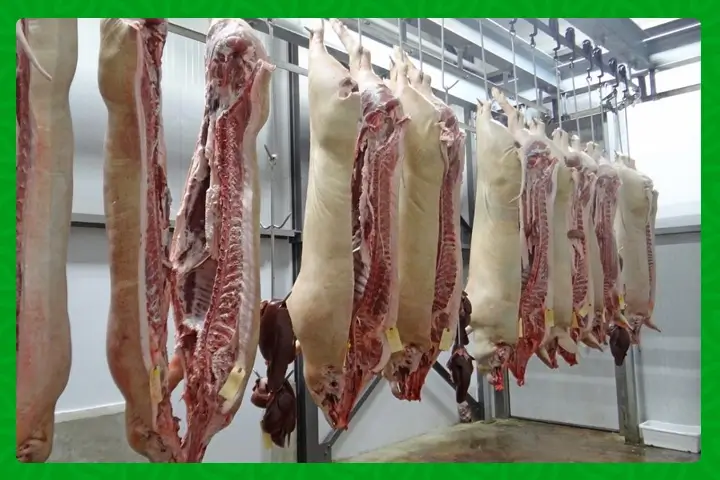
Rwanda is currently experiencing a significant transformation in its pork industry with the launch of state-of-the-art pig abattoirs across the country. These modern facilities represent a substantial investment in the nation’s agriculture sector and usher in a new era of enhanced food safety and quality assurance standards.
A New Era for Food Safety and Quality Assurance
The recent inauguration of multiple pig abattoirs in various Rwandan districts marks a significant milestone in the country’s efforts to elevate food safety protocols. Each facility is designed to process up to 50 pigs per day, ensuring that the entire production chain adheres to stringent hygiene and quality control measures. This advancement in infrastructure is not just about increasing capacity but also about maintaining the highest standards of food safety and quality.
Revolutionary Impact on the Pork Industry
Fabrice Ndayisenga, Head of the Department of Animal Resources Innovation and Technology Transfer at the Rwanda Agriculture and Animal Resources Board (RAB), emphasizes that these advanced abattoirs are set to revolutionize the pork industry in Rwanda. By utilizing cutting-edge technology and rigorous standards, Rwanda aims to produce meat products of unmatched quality, catering to both domestic and international markets.
Strategic Benefits for Local Farmers and Consumers
The strategic location of these abattoirs serves dual purposes: empowering local pig farmers and safeguarding consumer health. With an investment of approximately Rwf1.3 billion (US$1.006 million), Rwanda is showcasing its dedication to supporting small-scale livestock farming and providing its citizens with access to safe and healthy meat products. This investment not only improves the livelihoods of local farmers but also ensures that consumers receive high-quality pork products that meet international standards.
Growth of the Pig Sector
Over the past decade, the pig sector in Rwanda has grown substantially due to rising domestic and export demand for pork. As of 2019, Rwanda was producing an estimated 23,000 tonnes of pork annually, with a target to boost production to 68,000 tonnes by 2024. Additionally, the national pig herd has nearly doubled, increasing from 684,708 in 2010 to an estimated 1,498,721 in 2022. This growth underscores the importance of modernizing the industry to meet both current and future demands.
Boosting Meat Exports
In addition to meeting domestic needs, Rwanda’s investment in modern abattoirs is positioning the country to enhance its meat exports. The National Agricultural Export Development Board (NAEB) reports that Rwanda’s meat exports have seen a significant increase, reaching US$22.3 million in 2022/23. Key destinations for these exports include neighboring African countries such as the DR Congo, as well as emerging markets in North America and Europe. This expansion into international markets is a testament to the quality and safety of Rwandan pork products.
Rwanda’s strategic investment in state-of-the-art pig abattoirs is a game-changer for the country’s pork industry. By ensuring the highest standards of food safety and quality, empowering local farmers, and boosting meat exports, Rwanda is setting a new benchmark for agricultural development in Africa. This initiative not only enhances the economic prospects of the nation but also contributes to the overall health and well-being of its citizens and international consumers alike.
Stay updated with the latest farming tips and agriculture industry news from Africa by subscribing to our newsletter. Don’t miss out on valuable insights and updates. Follow us on Twitter, LinkedIn, and Facebook to join our farming community and stay connected with us.



















